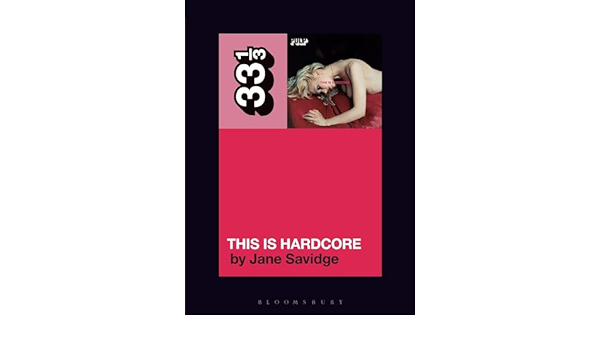
It’s astounding that nearly 80 years on from when war was once again declared across the world, that cinema has continued to find real stories from World War II and bring them to vividly to life on-screen. Even today, those brutal and bloody six years remain a relatively untapped source of heroic, tragic and conflict-ridden tales for storytellers and filmmakers to explore and recreate.
The great evacuation of Dunkirk (or as it was code-named – Operation Dynamo) in the summer of 1940 is just such a story that is ripe for a cinematic retelling. 400,000 soldiers, trapped on the beaches of France, under heavy fire from attacking German forces, and with little to no hope of salvation, rescued by the combined efforts of the British military and a ragtag flotilla of civilian boats. It’s the kind of extraordinary story Hollywood would wish they’d have thought of first, so inspiring and seemingly-impossible as it sounds.
It really was only a matter of time before renowned filmmaker Christopher Nolan would take the helm of a war movie – his grandiose style and penchant for spectacle is a perfect fit for the large-scale action and drama that the best war films demand. From the opening moments, there’s no denying that modern war epic Dunkirk is a perfect fit for Nolan’s talents.

Of course this isn’t the first occasion the story of Dunkirk has been depicted on the big screen – 1958’s Dunkirk trod similar ground in its depiction of the titular military exodus. But whereas that film put character at the forefront, Nolan‘s vision instead abandons almost all emotional attachment beyond the patriotic euphoria, detailing the events as opposed to the individuals. Taking place on land, on sea and in the air, the film cuts between three intersecting storylines, painting a full and detailed picture of the operation from the viewpoints of boy soldiers, the commanders, the fighter pilots sent to provide support, and the civilians who made the trip to France to bring their boys home.
The lack of an emotional anchor perhaps hinders the film more then it helps. As Nolan stated during production: “The problem is not who (the characters) are, who they pretend to be or where they come from. The only question I was interested in was: Will they get out of it?”
It’s a confident play on his part to say the least. But by putting character development aside and simply detailing the action, the film fails to provide the emotional hook the story really needs to engage the audience. This approach is all well and good, but how are we supposed to truly invest in the fate of the characters when we know so little about them or barely empathise with them?

The cast do the best they can with the material they are given – newcomer Fionn Whitehead barely speaks in his leading role as Private Tommy, yet still manages to sell the fear and the desperation of his character when it counts. Harry Styles provides the film with a sympathetic anti-hero of-sorts, a bigoted Private willing to sacrifice anyone he can to survive. The usual suspects like Cillian Murphy, Tom Hardy and Kenneth Branagh each bring understated pathos to their thinly drawn characters, whilst Mark Rylance steals the show as civilian mariner Dawson, providing the film with most of it’s heartfelt moments
Of course though, like with many of Nolan‘s recent films, it’s really all about spectacle and synonymous imagery. By and large, the director delivers said-spectacle with the talent one has come to associate him with. Loud, atmospheric sound design combined with visually haunting shots and gorgeous cinematography all coalesce into a stunning and aesthetically perfect film, showcasing each high-stakes set piece with furious zeal and skill.
The aerial dogfights are so deft and realistic, they’ll make your stomach clench. The scenes aboard the stricken warships are so expertly filmed and intentionally claustrophobic, you’ll feel as though you’re trapped there with the characters onscreen. When a bullet hits, you practically feel it, so powerful and loud is the sound design (bring headache tablets if you can)!

Further testament to Nolan’s vision is the way he handles the more grim elements of the tale. Unlike other recent classic war films like Saving Private Ryan, Hacksaw Ridge or Fury, Dunkirk doesn’t relish in depicting the violence in all it’s gory glory. There’s barely a drop of blood seen, and yet the lingering presence of death hangs over the picture throughout, largely due to the foreboding and evocative score from composer Hans Zimmer. Likewise, the Germans are notable by their absence, barely glimpsed yet ever present as a threat throughout the film, imbuing them with an almost supernatural air of mystique and approaching dread.
Of course, a lot of this is reliant on you seeing the film on the biggest screen possible. Like with Nolan‘s previous films, IMAX is the best place to watch, so engaging and immersive is the technology and the cinematic style. Likewise, the crisp, sharp 70mm film print imbues the film with a classic aesthetic, evoking old school cinema in the best possible way.
Dunkirk is not a masterpiece, but it comes bitingly close. Jarring time jumps and a few slight continuity errors, as well as distinct lack of emotion or substantial character development do sink the proverbial ship somewhat, though the growing tension and haunting visuals manage to keep things afloat. Christopher Nolan may occasionally struggle when it comes to creating emotionally investing characters or building any sense of pure sentiment, but his passion for the visually artistic and large-scale spectacle ultimately wins through! As WWII films go, Dunkirk is certainly something fresh and inspiring.



![The Cat And The Canary Blu-ray review: Dir. Paul Leni [Masters Of Cinema]](https://criticalpopcorn.files.wordpress.com/2024/04/image-5.png?w=1024)
![Building the Batmobile Tumbler [Hachette Partworks: Issues 41 – 52]](https://criticalpopcorn.files.wordpress.com/2023/03/maxresdefault.jpg?w=1024)
![All That Money Can Buy Blu-ray review: Dir. William Dieterle [Criterion Collection]](https://criticalpopcorn.files.wordpress.com/2024/04/devil-daniel-webster.png?w=1024)
![The Lord of the Rings: The Return of the King in Concert review [Live at the Royal Albert Hall]](https://criticalpopcorn.files.wordpress.com/2024/03/the-lord-of-the-rings-return-king-in-concert-royal-albert-hall.jpg?w=1024)







Post your thoughts